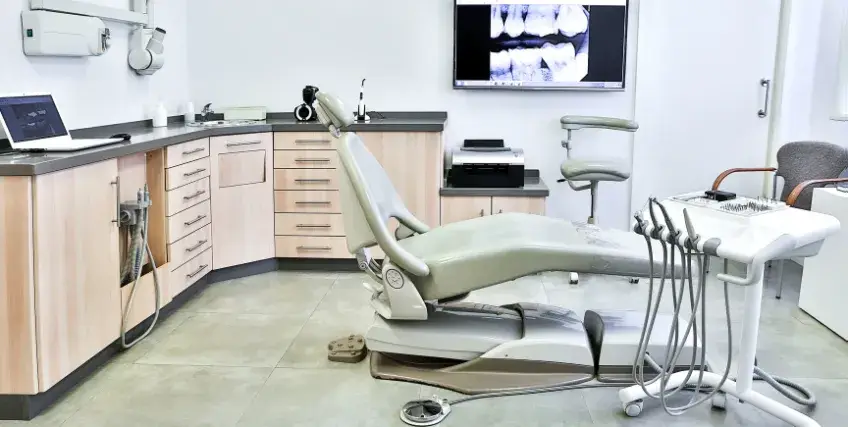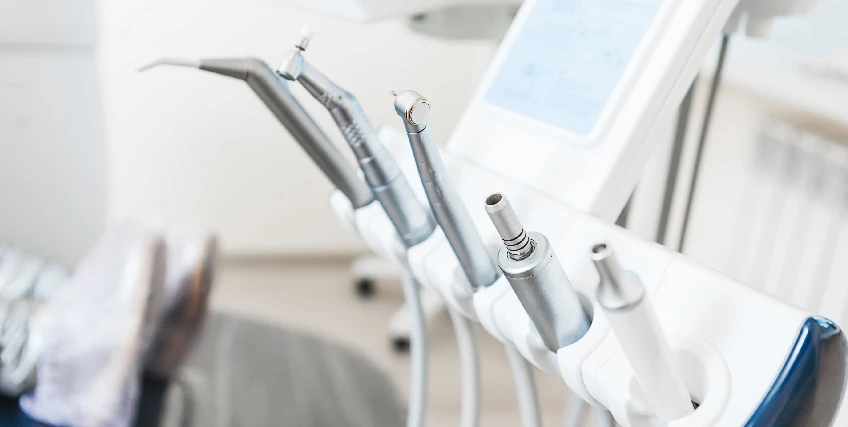Financing Options When Buying a Dental Practice
September 1, 2025 | Last Updated on: September 1, 2025

What marks a major milestone in a dentist's career? It is buying a dental practice. This provides dentists with practice ownership, access to a growing patient base, and the ability to influence practice management. But how to do this?
Understanding business financing is important for a smooth dental practice acquisition. Moreover, it ensures cash flow remains stable while accommodating new patients and maintaining active patients. Also, having a well-structured financing strategy allows dental professionals to focus on patient care, invest in updated equipment, and support staff such as hygienists or specialty providers.
As a result, dental loans also help practitioners safeguard their practice value, manage accounts receivable efficiently, and create a foundation for long-term growth potential. In this article, we'll discuss steps for buying a dental practice, the different costs involved in buying a dental practice, and types of business loans for purchasing a dental practice.
Why Financing is Crucial for Dental Practice Buyers
Business financing plays an important role in dental practice transitions. When buying a dental practice, dentists often face upfront costs like the purchase price, equipment, and real estate. Therefore, business loans help maintain accounts receivables, retain existing patients, and support staff such as hygienists and specialty providers.
A dental practice's financial health, growth potential, and metrics like patient flow or retention directly influence lenders. However, without adequate financing for buying a dental practice, even a dental office with strong patient demographics can struggle during the first year. While new dental practice owners must plan for referrals, startup costs, and continued practice management to ensure successful transition.
Therefore, when buying into a dental practice, business financing forms the foundation for a successful dental practice acquisition. It ensures the buying dentist can manage cash flow, support existing patients, and attract new patients. Additionally, the right loan options or purchase agreements allow dental practice owners to invest in various stages of business growth.
Understanding the Costs of Buying a Dental Practice
For business owners purchasing an existing dental practice, it involves more than the purchase price. It also demands careful due diligence, accurate valuations, and legal fees to help determine the true practice value when buying a dental office. A selling dentist may provide a purchase agreement outlining all assets, including accounts receivable, equipment, and real estate.
Important costs involved when buying a dental practice:
- Practice purchase price: The main investment for acquiring the dental office.
- Real estate: If the property is included or requires refinancing.
- Equipment and technology: Specialty tools, imaging devices, and practice management software.
- Staffing and salaries: Hygienists, DDS, and other dental professionals.
- Operational expenses: Insurance, utilities, and office supplies.
- Marketing and patient acquisition: Attracting new patients and retaining active patients.
- Professional fees: CPA, dental practice broker, or legal advisors for smooth practice transitions.
Additionally, when buying a dental practice other metrics like patient demographics, referrals, and patient flow help evaluate growth potential. As a result, this approach ensures the buying dentist can maintain financial health while managing cash flow and supporting existing patients during the first year.
Types of Business Loans for Buying a Dental Practice
There are several types of financing options available for dental practice purchases. However, each option has its own advantage, depending on practice value, patient demographics, and cash flow requirements.
Term Loans
Term loans are a traditional business financing option that offers a lump sum loan amount upfront. These loans come with a fixed interest rate and a fixed repayment schedule, providing a predictable way to finance large expenses.
When buying a dental practice, term loans can be used to cover the purchase price, invest in new equipment, or even fund practice management software. These business loans help dental practice owners maintain steady cash flow while gradually paying off the debt. However, to qualify for term loans, strong financial health and tax returns are typically required by lenders.
SBA Loans
SBA loans are backed by the U.S. Small Business Administration, making financing more accessible for small business owners. The most common options include SBA 7(a) loans which are versatile for general business purposes, and SBA 504 loans which focus on purchasing real estate or major equipment.
Dental professionals can use SBA loans to buy a dental office, acquire an existing practice, or refinance property. Moreover, these loans come with lower interest rates and longer repayment terms for qualified applicants. Hence, these loans make it easier for dentists to maintain patient flow and support staff such as hygienists and DDS providers during the transition.
Seller Financing
Seller financing is another business financing option where the selling dentist acts as the lender for part of the purchase price. However, the terms are typically flexible, and the buyer may make smaller upfront payments compared to traditional loans.
Seller financing can be used for buying a dental practice without securing full funding from a bank. It can be especially useful when the practice has a strong patient base, and the buyer wants to manage cash flow carefully.
Commercial Real Estate Loans
Commercial real estate loans are specifically used for purchasing or refinancing property. These loans usually involve fixed interest rates and down payments based on the property value.
Dentists can use these loans when buying the real estate of a dental office along with the practice. They provide capital to secure prime locations, upgrade office space, or expand specialty services, supporting both new and existing patients. However, personal guarantees may be required, depending on the lender.
Practice Acquisition Loans
Practice acquisition loans are specialized loans that can be used for buying a dental practice. They cover costs such as the purchase price, equipment, and patient base, and are often structured to match practice revenue.
Dental professionals can use these loans to acquire an existing dental practice while keeping patient flow and referrals intact. Lenders familiar with dental practice acquisitions, often recommended by dental practice brokers, can evaluate practice value, accounts receivable, and other metrics to ensure a smooth transition.
How Lenders Evaluate Dental Practice Buyers
Lenders carefully review several factors when approving practice loans:
- Creditworthiness: Strong credit score reassures the lender of repayment ability.
- Financial Health: Cash flow, accounts receivable, and tax returns are critical.
- Experience: DDS, prior practice ownership, or dental school experience strengthens applications.
- Patient Demographics: Active patients, patient flow, and retention rates indicate stability.
- Growth Potential: Metrics such as referrals, new patients, and specialty services show expansion opportunities.
- Collateral & Real Estate: Property or equipment may serve as security for the loan.
Hence, when buying a dental practice, understanding these criteria helps dental professionals prepare applications and ensures lenders have confidence in the dental practice purchase.
Tips for Choosing the Right Financing Option
When buying a dental practice, selecting the best practice loan requires careful planning:
- Assess Needs: Determine cash flow requirements, practice value, and purchase price.
- Compare Loans: Examine interest rates, repayment schedules, and terms.
- Check Flexibility: Some loans allow refinancing or early repayment without penalties.
- Work with Experts: CPAs, dental practice brokers, or consultants can guide dental professionals through steps to buying a dental practice.
- Plan for Practice Transitions: Ensure existing patients, hygienists, and DDS staff experience minimal disruption.
- Track Metrics: Patient flow, retention, and growth potential influence future financing decisions.
Final Thoughts
Buying a dental practice can be rewarding with proper planning. Understanding all financing options, including SBA loans, term loans, and seller financing, supports cash flow, patient retention, and growth potential.
Dental practice owners should prioritize due diligence, accurate valuations, and effective practice management. Collaborating with a CPA or dental practice broker ensures a successful transition while protecting practice value.
So, if you're ready to buy your dental office or start a new dental practice, consult a CPA or dental practice broker to explore financing options, structure your purchase agreement, and secure your practice's future.
FAQs About Buying a Dental Practice
What financing options are available for buying a dental practice?
There are several financing options for dental practice acquisitions. Term loans, SBA loans, seller financing, commercial real estate loans, and practice acquisition loans are commonly used. However, each option serves different purposes, such as covering the purchase price, securing real estate, or managing accounts receivable.
How does a lender evaluate a dental practice buyer?
Lenders typically review a buyer's creditworthiness, financial health, tax returns, and experience in practice management. They also consider metrics such as patient base, patient flow, and retention rates. For new dental practices, factors like referrals, active patients, and growth potential may influence approval. A CPA or dental practice broker can help present a strong application.
Can I buy an existing dental practice with limited upfront capital?
Business financing options like SBA loans or seller financing can reduce the need for a large upfront payment. These loans can support cash flow while covering the purchase price, practice value, or real estate. However, careful due diligence and a purchase agreement are essential to ensure a smooth first year and successful transition.
How do I determine the value of a dental practice before purchase?
Practice valuations involve analyzing patient demographics, active patients, accounts receivable, specialty services, and real estate assets. A dental practice broker or CPA often assists in assessing practice value and reviewing financial metrics. Additionally, understanding these factors ensures the purchase price aligns with growth potential and retention rates.
How important is a CPA or dental practice broker in the acquisition process?
A CPA or dental practice broker plays a crucial role in evaluating practice value, reviewing tax returns, structuring the purchase agreement, and assisting with lender approvals. Their expertise helps navigate dental practice transitions, ensuring the practice maintains active patients and a healthy patient base. They also provide guidance on managing referrals, optimizing patient flow, and sustaining cash flow during the practice's first year.
Frequent searches leading to this page
Term Loans are made by Itria Ventures LLC or Cross River Bank, Member FDIC. This is not a deposit product. California residents: Itria Ventures LLC is licensed by the Department of Financial Protection and Innovation. Loans are made or arranged pursuant to California Financing Law License # 60DBO-35839




